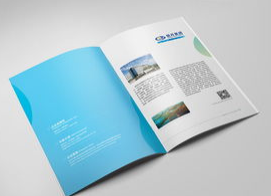- 阅读
- 阅读
- 技巧
- 百科
- 试题
- 文化
- 技能
Sells of phrasebooks are falling fast.
外语常用语手册的销量正在迅速下降。
The phrasebook had looked so helpful.
常用语手册曾经似乎很有用。

The consequences of eating are of abiding interest to British travellers of old.
用餐后的感受一直是旧时英国旅行者感兴趣的问题。
After the food, Leek’s Italian offers the regretful: “I feel qualmish, sick.”
吃完饭后,利克用意大利语表达了失望:“我感到不安、恶心。”
No destination is without its particular intestinal anxiety.
不同旅行的目的地都有其独特的“肠道焦虑”。
“After vomiting his food,” explains one physiologically intriguing entry in an old Korean manual, “his constipation was relieved.”
“在呕吐之后,”很久以前的韩语手册中一条有趣的生理学条目写道,“他的便秘缓解了。”
A 1903 medical phrasebook for Luganda, a Bantu language, offers the unexplained but authoritative: “Keep everything you vomit.”
1903年,一本班图语系卢甘达语的医学术语手册中写到了一句原因不明但看起来十分笃定的话:“把你的呕吐物都留下。”
To judge by these publications, the Briton abroad must have cut a strange figure.
从这些出版物来判断,海外的英国人一定塑造了什么奇怪的形象。
Many position themselves as aids to conversation.
许多常用语手册对自己的定位是“对话的助手”。
The 1909 “Manual of Palestinian Arabic”, for example, explains that its sample sentences “will, it is hoped, be useful to the traveller in his hotel” and “may conceivably be of use in daily life”.
例如,1909年的《巴勒斯坦阿拉伯语手册》表示其例句“或许能帮助旅行者顺利住店”,并“相信其可以在日常生活中使用”。
The book’s phrases include: “We reached the precipice and saw him fall down”; “He died before we found him”; and the gnomic “Gargle twice daily.”
这本书中提到的常用语包括:“我们到了悬崖边,看到他摔了下去”;“他在我们找到他之前就死了”;以及发人深省的“每天刷两次牙”。
Conversation will have hung heavy in the foyers of Jerusalem.
对话会在耶路撒冷的门厅里缓慢进行。
Books from the colonial era are unintentionally telling.
殖民时代的书籍无意中证明了这一点。
History books tend to concentrate on the obvious moments of imperial brutality - on war and rebellion.
历史书籍往往会关注帝国的残暴时刻——战争和叛乱。
Phrasebooks offer the chance to eavesdrop on quieter colonial cruelties in the drawing rooms of empire.
常用语书籍则让我们可以有机会窥见帝国的客厅里更平静的殖民暴行。
“Hold your tongue!”
“闭嘴!
barks one phrase in a 1908 “Hindustani Self-Taught” manual.
1908年的一本《印度斯坦语自学手册》中有一句话叫道。
“Beat that lazy boy” snaps an entry in another guide.
另一本指南书中有一句写道:“打败那个懒汉”。
Many phrasebooks remained in use for a surprisingly long time.
许多常用语书流传了很长时间。
When Elisabeth Kendall, the mistress of Girton College, Cambridge, studied Arabic at Oxford University in the early 1990s, she did so using grammar books that dated back to 1859 (“The cow’s tongue is long” was a typical phrase).
上世纪90年代初,剑桥大学吉顿学院的女教师伊丽莎白·肯德尔在牛津大学学习阿拉伯语时,使用的是可追溯到1859年的语法书(“牛的舌头很长”是一个常用短语)。
She retains a linguist’s affection for their methodology.
作为语言学家,她喜欢这些作者编写书籍的方法。
Some phrases may have lacked practical utility but often illustrated “a grammatical construction in the simplest possible way” - and they were memorable.
有些短语可能缺乏实用价值,但往往“以最简单的方式说明了一种语法结构”,并且令人记忆深刻。
Steven Pinker, a professor of psychology at Harvard University, agrees.
哈佛大学心理学教授史蒂文·平克对此表示赞同。
A language, he says, “is not a list of phrases”.
他说,一门语言“不是一系列短语的组合”。
The impracticality of some entries may have been intentional so “speakers would not be locked into canned expressions in stereotyped situations”.
有些词条可能是故意写得很不切实际,这样“在说话时就不会因为刻板印象而拘于格式化的表达”。
The fading genre of the phrasebook is unlikely to be missed.
常用语手册不会静悄悄地消亡。
But something will be lost when it is gone.
但随着它的消失,其它一些东西也会跟着逝去。
Poetry, Robert Frost supposedly said, is what gets lost in translation.
据说罗伯特·弗罗斯特曾说过,诗就是在翻译中丧失掉的东西。
Read these books’ dislocated phrases and poetry can be found in it, too.
这些书中错位的短语间也可以找到诗意。
“Owing to the road being slippery I nearly fell / Ten years ago / Come here,” runs one T.S.Eliotish section in a 1894 Tai-Khamti Grammar.
“由于路滑,我差点摔倒/十年前/来这里,”这是1894年《坎底傣语文法》中T.S.艾略特风格的一小部分内容。
The last words go to entries in an English-Kashmiri manual: “I am now composing a grammar/ I don’t exactly comprehend this…/ It is time to conclude.”
最后这句话出现在一本英语-克什米尔语手册中:“我现在正在编写语法规则/并不能完全理解……/是时候结束了。”
来源:经济学人
参与评论